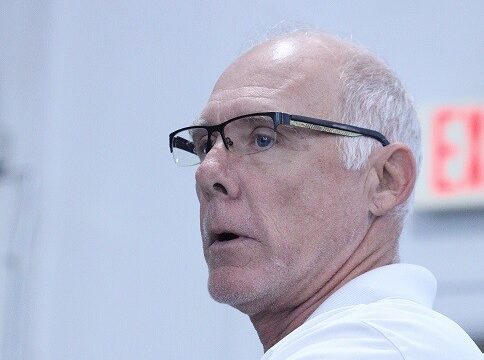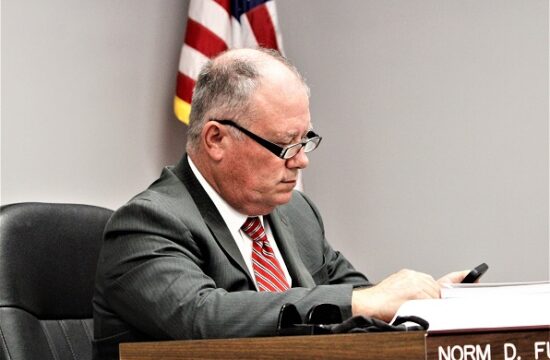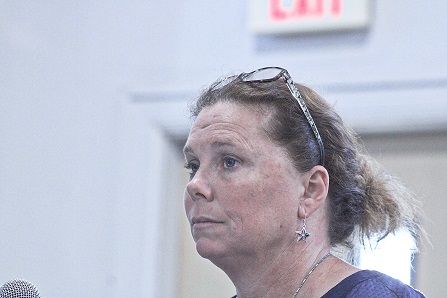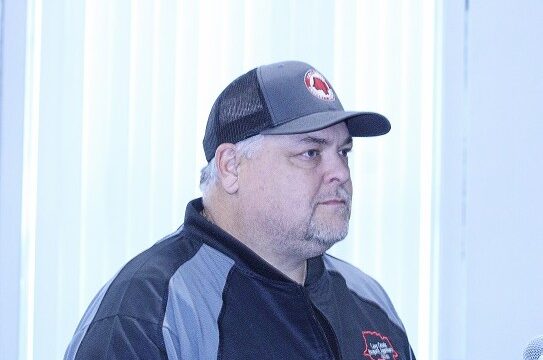By Terry Witt – Spotlight Senior Reporter
Levy County Commission Chairman Matt Brooks hasn’t sat through his first meeting as chair and is already proposing a system to shorten meetings and allow multiple agenda items to be approved by a single vote – a consent agenda.
Critics of consent agendas complain of decreased transparency when commissioners move what they consider to be “routine items” into one agenda item for approval without discussion by the public.
The backup material for Brooks’ agenda item says a consent agenda increases transparency. The board meets at 9 a.m. Tuesday at the Levy County Courthouse.
The decision by Brooks to propose a consent agenda for use during county commission meetings comes during his first chairmanship. Brooks and Commissioners John Meeks and Mike Joyner are running for re-election this year.
His agenda item for tomorrow’s meeting lays out the reason why a consent agenda would be a good idea in his view.
“Highly functional boards know that board time is a precious commodity that shouldn’t be squandered. A tool that many boards consider to make their meetings more efficient and productive is the consent agenda – also called a consent calendar,” Brooks’ item states.
Levy County Commissioners earn an annual salary of $37,000 plus benefits. Should they allow every item on the agenda to be discussed individually rather than clumping many together for approval with one vote? That’s the question.
Spotlight has always opposed consent agendas. The Levy County School Board uses a consent agenda to shorten meetings. Few people attend.
Elected boards sometimes use the consent agenda and other rules to limit public discussion and thus shorten meeting length.
Former School Board Chairman Brad Etheridge adjusted meeting procedures when he said the public could speak only during the “welcome visitors” portion of the agenda and only when he recognized them.
Spotlight found out about this procedure when Founder Linda Cooper asked to be placed on the agenda to discuss why Dennis Webber was appointed as the school board’s security director through the use of the consent agenda.
The school board spokeswoman responded to Cooper’s request to be placed on the agenda with the statement below:
“During the welcome visitor time on the agenda, the board chairman will invite anyone that wishes to address the board. You are given five minutes. You may submit questions at that point and someone will respond at a later time,” said Kalee Wade.
School Board attorney David Delaney later clarified the policy. He said state statute allows people in the audience to raise their hand to ask questions when a motion had been made, and before a vote is taken on the motion. Etheridge later relaxed his rules and allowed Spotlight to ask questions throughout the meeting.
Spotlight contacted the Attorney General’s office to complain about lack of transparency and unannounced executive sessions by the school board. The public and press are excluded by state law from school board executive sessions. The school board consent agenda remains in place.
Meeks used a transparent approach to run county commission meetings. He was open to anyone asking questions during the meeting rather than allowing questions only after motions were made. However, it was Meeks who complained about the lack of a consent agenda and how having one could speed up meetings.
Brooks’ agenda item sums up how the consent agenda would work.
“All items contained herein may be voted on with one motion. Consent items are considered to be routine in nature, are typically non-controversial and do not deviate from past commission direction or policy. However, any Commissioner, the County Coordinator, or the County Attorney may withdraw an item from this list, either in writing prior to the meeting, or at the beginning of the meeting and it shall then be voted on individually. Every effort should be made to provide such a request to the chairman at least 24 hours before the meeting,” Brooks agenda item states.
His agenda item said consent agendas typically include the following business items:
Office or committee reports;
Routine correspondence that requires no action;
Minor changes in policy or procedure (e.g. for purposes of clarity or to update without changing intent or meaning);
Routine policy revisions (e.g. changes in dates or dollar amounts due to changes in laws);
Standard contracts that are used regularly (e.g. confirmation of using the traditional in-house contract with a new vendor);
Confirmation of conventional actions required in the bylaws (e.g. signatory authority for a bank account or acceptance of acceptance of gifts);
Final approval of proposals or reports that have been fully discussed and vetted at past meetings;
Reports provided for information only.
Items on the agenda can be moved to the regular agenda at the request of a board member for discussion, but not by members of the public.
Under the category of “public comment,” Brooks’ agenda item states:
Issues related to agenda items, no debate, and no action by the County Commission;
Complete public comment form and submit to the chairman.
As part of his agenda item for tomorrow’s meeting, Brooks also submitted a 2013 resolution approved by the county commission relating to the establishment of agenda and public participation in board meetings.
The resolution noted that Florida Legislature adopted a law in 2013 that says “members of the public shall be given a reasonable opportunity to be heard on a proposition before a board or commission takes official action.”
The law also said the public’s right to speak at board meetings, “shall be subject to the rules or policies adopted by the applicable board.”
In 2013 the board adopted two policies governing public participation, saying the public must be given reasonable opportunity to be heard before the board takes official action, but the board will not be required to provide the public such reasonable opportunity in the event any of the following occur:
- The official act of the board deals with an emergency situation dealing with the public health, welfare or safety, if providing the public a reasonable opportunity to speak would cause unreasonable delay in the ability of the board to act.
- The official act involves no more than a ministerial act, including but not limited to approval of minutes, expenditures and proclamations.
- A meeting is exempted by Florida Statute from being public.
- A matter in which the board sits in a quasi-judicial capacity and is required to meet legal requirements for quasi-judicial actions.
Where is Brooks headed with this discussion? Stay tuned.
Agenda Item From Regular BoCC of County Commission Meeting January 7, 2020; Posted January 6, 2020
Spotlight FB page has the PDF of pages 44-53 of the supporting documents for Board of County Commission that pertains to implementing a consent agenda.
Board Member Email Addresses:
District1@levycounty.org – John Meeks
District2@levycounty.org – Rock Meeks
District3@levycounty.org – Mike Joyner, Vice-Chairman
District4@levycounty.org – Lilly Rooks
District5@levycounty.org – Matt Brooks, Chairman













